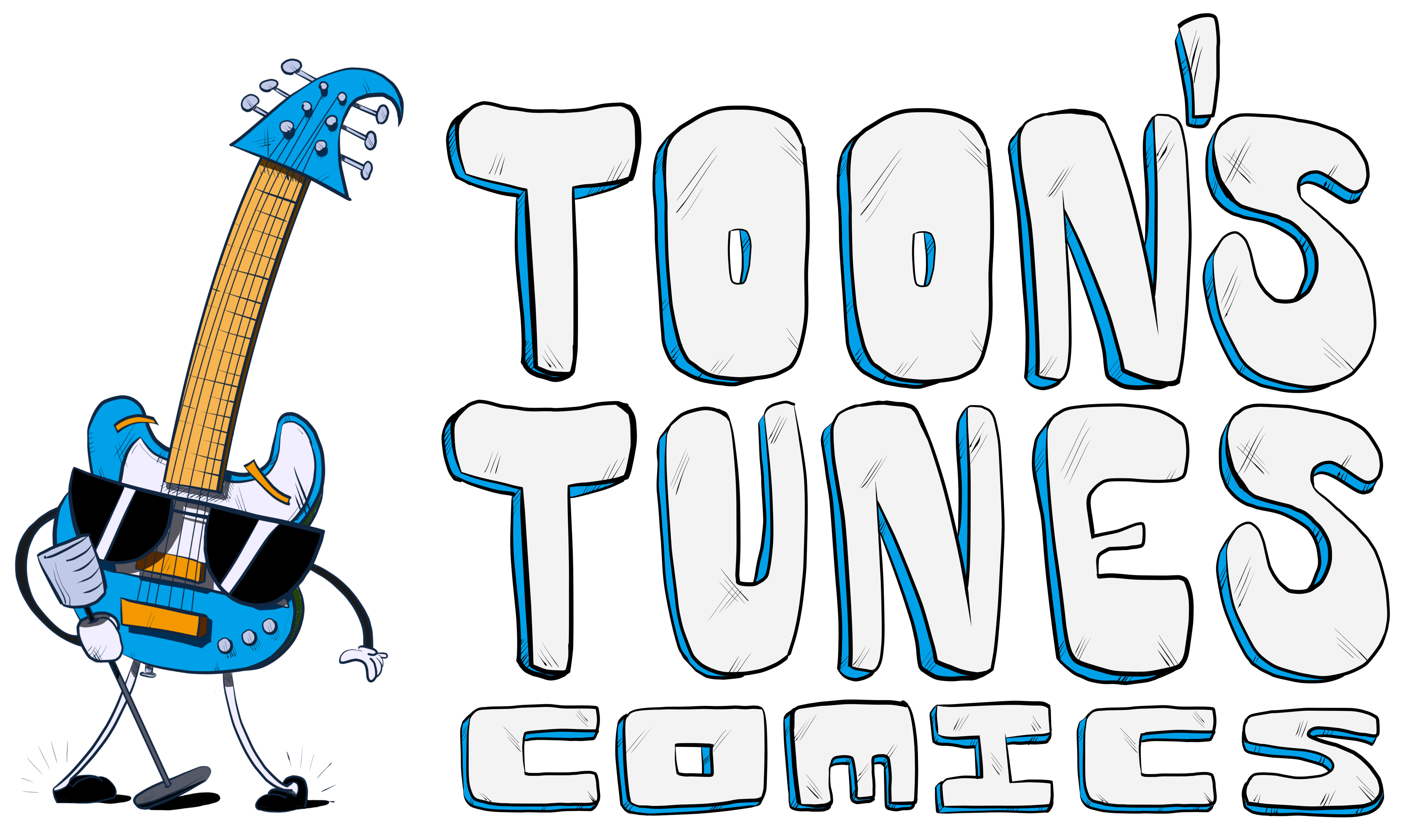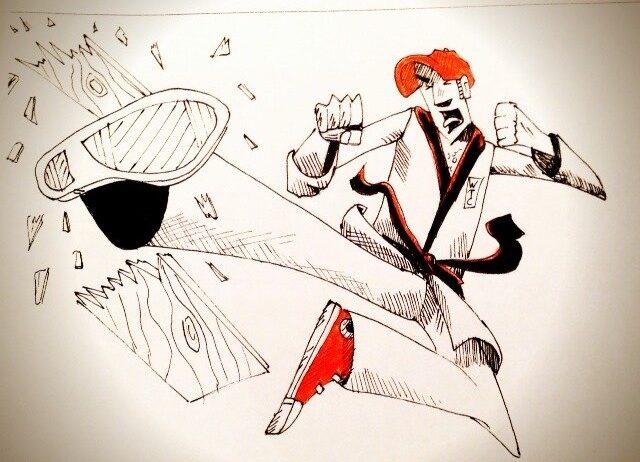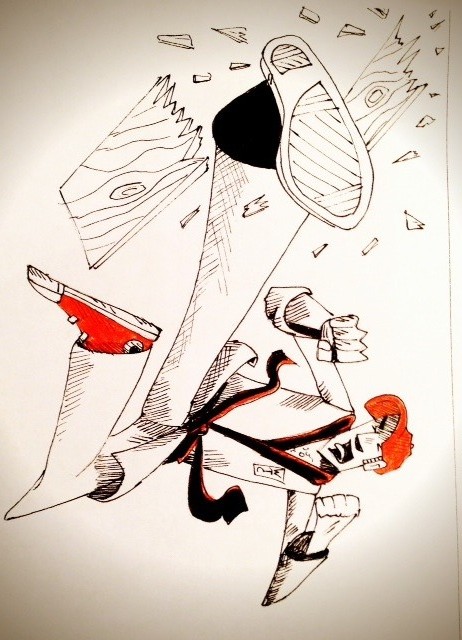Let’s jump in Doc Brown’s DeLorean time machine and go back to the past…
In the year 2000, when I started teaching music I didn’t have a guideline on what to teach. I didn’t have a bachelors degree in education and as of today I still don’t have one.
Now, 15 plus successful years later and having taught thousands of students I’m not sure if I still need one.
I’m not knocking education, it’s important that we get the right education and most colleges try to get you by requiring you to take classes that have nothing to do with what your majoring in. I am a person that naturally doesn’t like owing anyone anything. I don’t want to be a slave to the system.
“The borrower is a slave to the lender.”
Yes, I was a college drop out and the reason was because the classes I was attended had nothing to do with music and art, and the system just wanted to suck the money out of my pockets. I attended only the music and art classes that I needed, payed my tuition and I was out.
During college I started teaching music at a local music school. I studied great musicians like: Victor Wooten, Abraham Laboriel, or Matthew Garrison
I learn so much from these great teachers, I developed over the years and applied my own guidelines on what a great musicians skills should have in their own arsenal.
Whether you play guitar, drums or bass these skills apply to all musicians regardless the instrument.
9 Skills of Musical Awesomeness
1. Technical Skills:
Technique is the physical part on how you approach your instrument. If your a guitarist you would most likely use a guitar picking technique or the fingering technique. You don’t need to know every technique on your instrument just the main ones. Sweep picking on your guitar is an awesome technique to have in your back pocket. It’s a “nice to have” technique but not a “need to have” technique.
The main techniques on your instrument should be mastered, so whenever a complicated riff or scale comes your way you can attack it with a vengeance.
2. Reading Skills:
Music is a language and like any language it has a reading and writing system. We don’t necessarily need reading and writing to express ourselves with our instrument. Reading music will expand your knowledge and allow you play music from around the world.
There are plenty of unrecorded music out in the world, but there is sheet music for it, and being able to read and interpret it will bring your value up to another level.
3. Music Theory:
The ABC’s of music. Just like you know your alphabet, vowels, consonants, etc. There are tons of people who can speak english well, but can’t read or write. Would you think they were ignorant? If they the knew their ABCs and the basic rules, they would be able to communicate in a lot more clearer fashion.
Music theory gives you the “why” aspect. When I was a kid I always wanted to know why certain sounds, sounded a certain way and “how” I can use what I just learned and interpret it in any key or style. Theory gave me that “AHA” moment and allowed me to expand, experiment and be “out of the box”. If you don’t know the rules, then you can’t break them.
4. Style/Rhythm:
“If you ain’t got no groove, then you ain’t got no pocket.” Victor Wooten.
This world has a plethora of different cultures with beautiful music that we have yet to discover. Musicians should be eclectic, which means we should be familiar with different styles of music.
I’m a jazz, rock, funk, blues, gospel, latin music kinda guy. Being a diverse musician in many styles will give you that advantage and feel that no other musician will have. I know of many rockers who just stick to their style of music and there’s nothing wrong with that, but don’t be a conformist and expand your horizons. Believe me you’ll be glad you did. Your groove will be so tight.
5. Listening/Ear training:
Mozart had what they call “absolute pitch” which means he can identify a musical note or chords just by listening to it without a musical instrument. Relative pitch is when you use an instrument to identify the musical notes.
Most musicians don’t have absolute pitch, they have relative pitch or can develop it. I have relative pitch which took me years of hard work transcribing songs and solos. I have gotten to the point where I can identify a key or note in a spilt second on my instrument. This ability has gotten me many gigs, because I can pick up a song rather quickly, usually within one or two times listening to the tune, depending on the difficulty or course. I don’t have absolute pitch yet but I’m still working on it.
Listening skills is where your ear focuses on not just yourself, but the music around you. Knowing what feel and notes to use at the appropriate time during the song will take your music beyond. Don’t add too much hot sauce in the tacos or you can ruin your meal. Serve the song, not yourself.
6. Improvisation:
When they shine the spotlight on you so you can rip on your guitar solo are your ready? This is where instant creativity will flow. I’ll be honest, I’m more of a rhythm groove guitarist, not a lead soloing guitarist. This is my next step in taking my skills to the next stage. I’m really working on this area, transcribing solos after solos. I’m getting there slowly but surely.
By standing on the shoulders of giants, which means modeling after great musicians, discovering what their process was on how they reached that level. Modeling after their methods and tweaking it to fit your style to be more effective will make you a giant yourself. Google your favorite musicians and study their methods and thought process and apply it and soon you’ll be able to tear the walls down with your mind blowing solo.
7. Composition:
Most musicians I know are mostly copycats, meaning they only play other artists tunes and they join cover bands and play top 40 music. There’s nothing wrong with that, and you can make good cash playing in a top 40 band, but I’ve been there and done that.
Composition is what separates you from the wannabes to true musical art. Creating your own compositions, good or bad gives you advantages that no one has. You interpret melodies and harmonies from deep in your mind and bring it to life so everyone can enjoy your creation. You don’t really need music theory to create a song, but it will really gives you wings to fly further. All the greatest musicians and artists are composers. Stand on those giants shoulders and see where they can take you.
8. People skills:
My friend Jimmy P. is an awesome drummer probably one of the most gifted I’ve ever seen, but there’s one problem. He has no people skills, he could be playing with big major artists. He’s played with some artists and done thousands of gigs, but hasn’t done much to advance his career.
Could it be his musical ability, I highly doubt it.
I, on the other hand have gigged with various major artists and traveled the world and have been sustaining my career as a professional for over 10 years. Jimmy is still struggling. Why?
He lacks basic people skills, doesn’t know how to interact or network with others. Jimmy thinks his music skills is enough to get him the gig. If we compare each others music skills, he totally outweighs me in musical capacity no doubt. What Jimmy outweighs me in musical skills I, outweigh him in people skills.
My buddy Jimmy is a good guy, but he’s very shy. Being quiet doesn’t mean your shy. Shyness is the lack of comfort or awkwardness towards people. This feeling can be overcome step by step. It’s definitely a process and I know Jimmy can conquer it. You can be shy or a total jerk or just weird if people don’t like you or are uncomfortably around you, you won’t be getting a call for the next gig.
If your not a good “hang” or team player with members of your group, then I think it’s best that you try to work on those people skills.
9. Entrepreneur skills:
Entreprenuership is a mindset that I’ve discovered most musicians don’t have, including myself at an early age. All I wanted to do is play music, get my paycheck and go.
Surprisingly, that is what most pro musicians do, they audition hundreds of times for artists, get the gig, play the gig, get paid and go home. When the gig is over with they just look for the next gig and repeat the process over again. Kind of like working construction, once the building is complete you have to find the next job.
Entrepreneurs should use their creativity, talents and skills to create assets, so if a gig doesn’t come through they don’t have to rely on that income, cash flow will keep coming in regardless if they get the gig or not.
What is an asset?
It’s something that you create or invest in that puts money in your pocket without you lifting a finger.
For musicians an asset can be: licensing your compositions to artists, commercials, movies, releasing an album and selling it on iTunes, publishing your own music instruction book, creating a instructional DVD, investing in a production music studio, and many others.
The biggest artists in the game for example invest in: a clothing lines, energy drinks, colognes, shoes, etc, most of their millions come from their investments, not from record sales, especially not today.
I have invested in this website, publishing a book, an online retail company, and the stock market. I plan to keep building my assets as I move forward and believe me it’s not easy, but I would rather struggle in working on my assets knowing that one day it’s going to bless me, my career, others and my family then struggling trying to find the next gig.
That’s my two cents.
Ok, I’ve talked too much, here’s the run down.
If you want to be a:
Great hermit musician stuck in your cave ripping on scales all day. Master skills: 1-7.
If you want to be a:
Working musician and get in the game. Master skills: 1-8.
If you want to be a:
Musically awesome ninja musician and share your gifts with the world. Master skills: 1-9.
I hope you found value with this information. Feel free to add anything in the comments section below and please share this post with someone.
Thank you much and build those assets.


